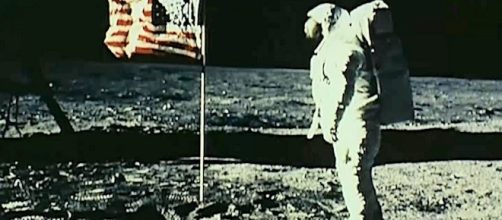The Apollo 11 moon landing and the subsequent walk on the moon was a shared global experience like no other. No other event in the history of the world, before or since, was followed by so many people while it was happening in real time. One estimate suggests that a billion people stopped what they were doing and followed the event on television or the radio, on a planet that contained just three and a half billion people.
Video from the moon
NASA developed a Manned Space Flight Network that consisted of dishes at Goldstone, California, Fresnedillas in Spain, and Honeysuckle Creek in Australia.
The television signals from the Apollo 11 moonwalk were initially received by the Honeysuckle Creek dish but then switched over to another dish near Parkes, made famous by the film "The Dish," 300 kilometers away. From Parkes, the television transmission went out to the entire world.
For the people who watched the moonwalk, the experience was similar. They gathered around an analog television with a cathode ray tube and watched blurry images from the surface of the moon. The quality of the pictures would have been considered laughable by the standards of modern, digital, high definition technology. It didn't matter. The event was like nothing that had ever happened before, except in science fiction.
However, it was actually happening.
Will the world ever have such a shared experience again?
The technology through which people can experience events happening from anywhere on the planet, or off the globe, has expanded and improved in 48 years. Besides television with a clarity that would have amazed people in 1969, one can livestream anything over the Internet on hand held devices that not even "Star Trek" had imagined. However, will there ever be another event like the moon landing that will catch the attention of the now seven and a half billion people on the planet (and the six or seven who live on the International Space Station?)
It is beguiling to think that when people return to the moon or set foot on Mars, billions will stop what they're doing, gather around big screen televisions or take out their tablets, and watch history being made on another world.
Unlike July 20, 1969, the experience will not be a passive one. People will comment on the event in real time on social media, expressing awe, wonder and, the nature of some people being what it is, snark.
It can be hoped that some people will be alive for that future event who were alive during Apollo 11. The comparison of the two experiences will be an interesting one, to say the least, separated as they will be by generations.


